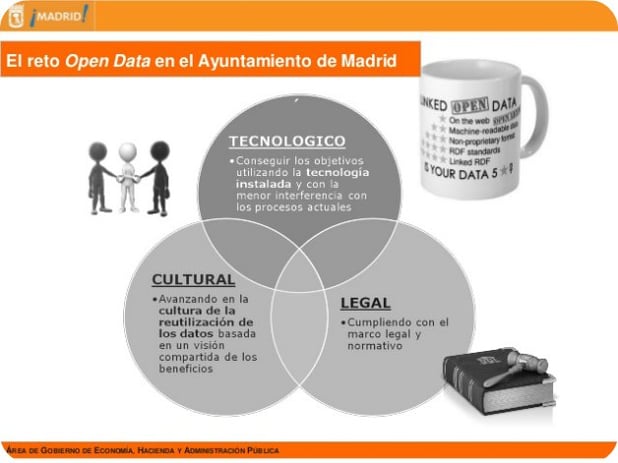Not long ago I wrote an article where I explained the low visibility of tech women’s projects, and I titled it: “Welcome, Mr. Marshall”. My aim was to show up that in Spain very little is done by national entities with regard to the quandary of the low index of women in STEM (acronym for Science, Technology, Engineering, Mathematics) professions.
Show me Spaniard data
I consider this article, that is now in your hands, a second part to the first one. And I say a second part because I’m not the kind of person who opens a wound without giving in exchange at least a sticking plaster or, to say it in other words, I’m one of those who thinks that if you point at a problem, at least you should provide one solution.
The problem, the lack of data
Throughout my experience in gender issues, I have always stumbled against an underlying problem which I think would be the entrance door for finding multiple solutions together with different ways of tackling them.
A multi-focus approach is, from my point of view, essential for covering the whole quandary both from its origin in social and educational environments in families and schools, as well as in their later development in the socialisation of individuals at universities or adult schools and, finally, in the work environment.
But, which is the underlying problem I always stumble against? The problem is called DATA, or rather, lack of data. Indeed, at this stage in the game, we face a problem that puts the brake on a broad-scale and better-quality intervention for the rectification of the problem of counting with very few women in STEM professions.
I’m not a data expert and this is just my opinion, and, of course, my difficulties need not be the same as those of an expert on the subject. So, I think I’ll need to have a coffee with an expert on the subject who can clear up my questions, and I think I know the right person.
Inés Huertas - Data Scientist & Big Data | NASA Datanauts

This is Inés Huertas Freire‘s professional profile title. She’s a Telecommunications Engineer and has a master’s degree in Telematic and Information Systems. She is also the Co-founder and current CEO of Datatons, a data-specialised company.
In addition, Inés co-manages the R-Ladies Madrid community and is a tireless solution hunter for the improvement of women inclusion figures in the data sector. The NASA Datanauts thing makes her become de facto an astronaut, but this is another story about which I’ll let you ask her in private so that she can tell you all about it, I just mention it so that you get to see Inés’ professional quality; in just one word: impressive.
Gender data at an institutional level
The first thing I do is ask Inés on the difficulty that I come across for finding data on gender and technology in Spain and I also ask her if she, who is an expert on this subject, comes across the same difficulties, and her answers are illuminating. She says that the related data she usually finds are not aggregated enough and that, on top of it, they are very hard to find. Aggregated, what does this mean? It means that they are not categorised enough for later on obtaining a faithful value when interpreting them.
Institutional update issue
It looks like there’s also a data-related problem besides its aggregation, and it has to do with the updating speed. To illustrate this issue, I will transcribe one of Inés’ sentences which is very meaningful:
- “How is it not going to be this way when even judicial authorities still work with paper.”
And this tallies completely, but I get the feeling that there is something else, more complex and invisible in our conversation, which is bigger than just the kind of data, and she is also the key without knowing it because she is, no more, no less, the WHO, the subject of these data about STEM women in Spain.
Who decides which data regarding gender issues will be studied in Spain?
I’m not going to lie to you, the conversation with Inés narrows down to her profile as CEO at a company and to how she has had to overcome simultaneously both her own and external barriers in order to find her own way by leading proposals and organising teams. We talk about new management, other ways of leadership, and of the corporate culture which favour finding people’s real skills and, especially, the conditions that we (women) need in order to make it happen.
In my head, everything mixes up in the shape of a profile like Ines’ one that I’ve seen in other CEOS, but, for the time being, not so clearly in a CEO woman. I categorise these profiles as Humanist Managers. Then I think of the person in charge of deciding the gender data and I can’t help but think that this is also a big problem, since it is very difficult that a man can have the knowledge a specialist woman has on certain areas such as gender and data at this moment in time, since we’re talking about a path which is currently gone down by dint of need and obstacle overcoming, as in Inés’ and many other women’s cases.
Data gender at a private level

Let’s leave this aside for now and focus on private companies. We briefly talk about the experience of Madrid’s City Hall Open Data and of how it favours the private exploitation initiative.
But we also talk about the who, again, those women in managing positions, or in other words, those profiles who usually see/experience in a greater way the consequences and failures of this lack data and initiatives and who have the necessary power to develop projects and action programmes in this field. Questions flow through my mind and we talk at length from her experience as a CEO woman; and we also talk about the secret ingredient to get where she is now and of how she has done it, since very few women get there.
Because we do have data on the glass ceiling, as well as on the salary gap and the differences regarding hiring. For example, in the IT area, the CII or Colegio de Ingenieros Informáticos (IT Engineering School) provides more focused studies (even though not enough for a more specific solution-building from my point of view).
Putting everything in a nutshell
I know this article is quite brainy for establishing something I’m going to summarize in a couple of paragraphs:
- By having available quality data regarding gender in STEM professions we will manage to perform more accurate interventions to increase the number of women in this field and regarding this issue, institutions still have a lot to do.
- WHO chooses the data is an essential issue, and it’s not easy to find profiles with enough power and training at an institutional or private level in order to head the right direction.
Summarizing, and as I said before, this article is a second part to the first one; it is the picture of the current situation in Spain for trying to stimulate the need for coming up with solutions in the medium-long term. Many times, we cannot see the forest for the trees and, from my point of view, the coming years should be loaded with actions favouring open and quality data with regard to gender and STEM issues and, above all, betting on management in favour of what may spring forth from these data.
Remember that, as in the rest of the article, this is just an opinion and no matter how substantiated, corroborated and studied it is, it can be mistaken since, above all, when the way is being paved, doors are harder to find.


